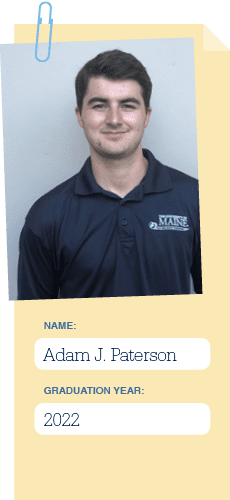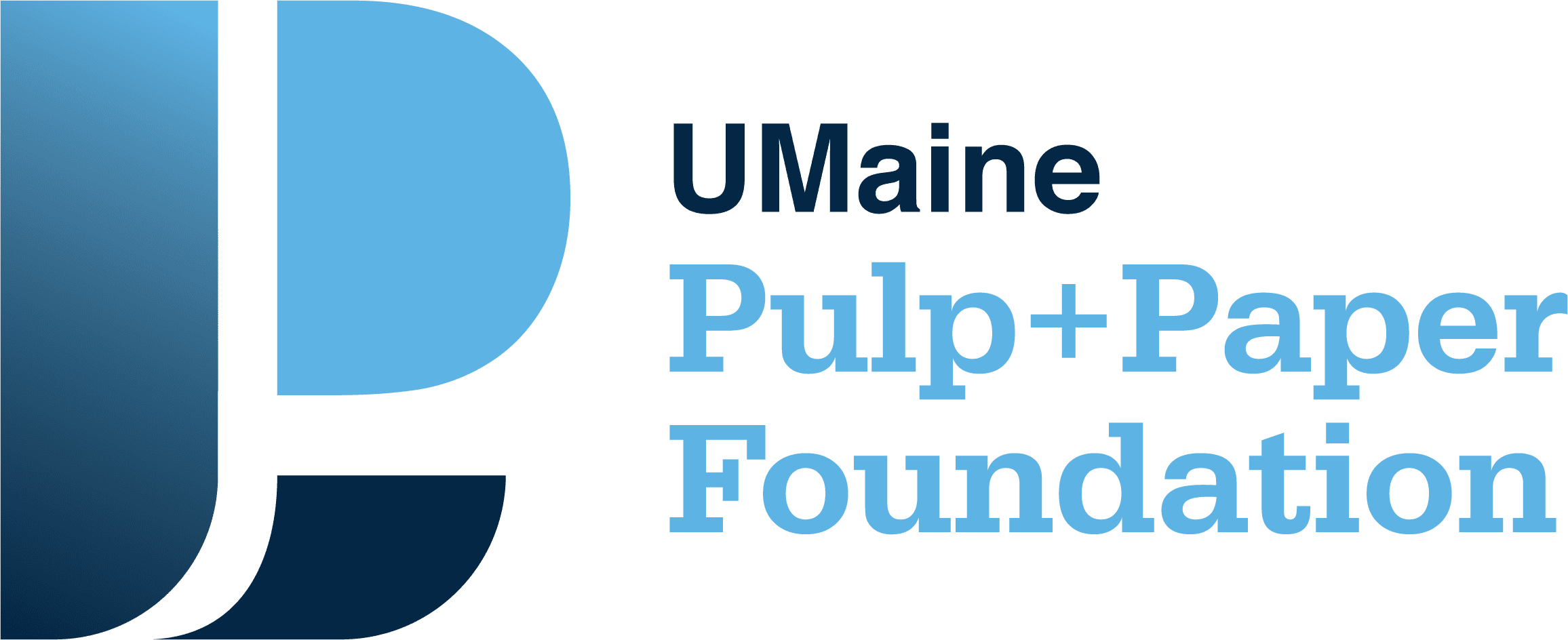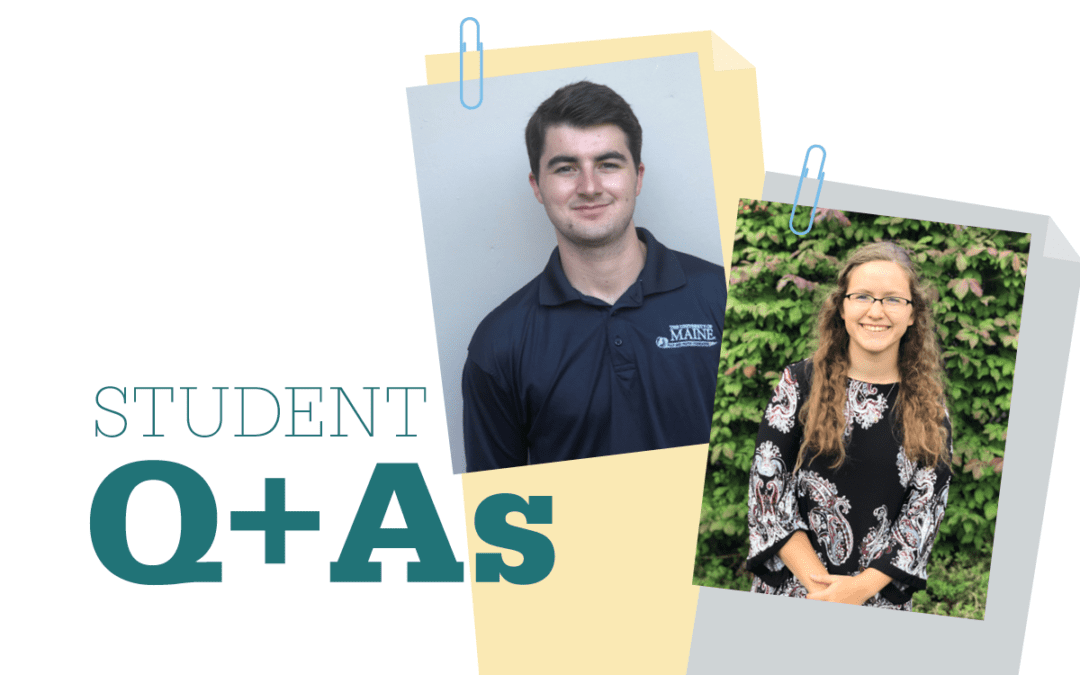 Q: How did you discover the University of Maine Pulp and Paper Foundation and what attracted you to it?
Q: How did you discover the University of Maine Pulp and Paper Foundation and what attracted you to it?
A: I was told about the Pulp and Paper Foundation from a teacher in high school. At first, I applied because of their scholarship. I quickly learned that they also provide a ton of resources to help you succeed in college and in professional settings.
Q: How did you know the program was the right fit for you?
A: I knew this program was the right fit for me when Carrie and Jen worked with me while studying abroad. Even though I was on the other side of the world, they made sure that I had all the resources I needed and even helped me set up video internship interviews. This proved to me that they really want to see their scholarship recipients succeed.
Q: What was top of mind when considering the program?
A: Originally it was the tuition assistance. As time went on, I learned how much more UMPPF has to offer an aspiring engineer, like their co-op/ internship program. This is one of the most fluid operations that I’ve ever seen. For us students, it’s as easy as clicking a link and signing up for an interview time. Everything else beyond that is taken care of by UMPPF. Also, they provide many networking opportunities, peer tutors and so much more.
Q: What is your favorite thing about the UMPPF?
A: My favorite part about UMPPF is that they actually care about your education and how you develop professionally. They go above and beyond and answer whenever called upon for help. A great example is when I studied abroad in the fall of 2019. There is a month-long period where UMPPF students do interviews for co-ops for the next summer. All of these interviews are done in person which was impossible for me considering I wasn’t in the country. They went out of their way to make sure I had everything I needed to conduct my interviews via Zoom calls. For this, I am very appreciative because it allowed me to fulfill a dream of mine while also not missing a great opportunity.
Q: What do you think are common misconceptions about the industry that you were surprised to learn weren’t true?
A: The idea of making paper on a surface level seems boring. This is because people don’t realize how complex the process is. With a product that is so common and basic it seems as though the process to make it would be equally basic. This is completely false as I have learned and witnessed the pulp and paper industry as anything but basic.
Q: Describe your co-op/internship experience.
A: Currently, I am doing an internship with SAPPI in their Somerset Mill. Thanks to UMPPF I was able to get this internship and develop my skills and knowledge in mechanical engineering. My main project right now is developing a brace to secure rolls of paper that are to be cut and then turned back into pulp. On a daily basis there are problems that are brought to me that need my attention. Each day is different, and I wouldn’t have it any other way.
Q: If one of your friends were considering UMPPF, what would you tell them?
A: This past semester two of my close friends actually joined UMPPF. This is what I told them: “UMPPF does so much more than just recruit young engineers to the pulp and paper industry. They offer a number of workshops that help you develop your professional skills. Sure, it’s nice to have some of your college bills taken care of but in the end UMPPF sets you up for longer term success.”
Q: How do you feel about your future in the industry?
A: Currently, I’m keeping all of my options open. There is a high chance that I continue my career in the pulp and paper industry after graduation and that’s because of what UMPPF has shown and taught me.


Recent Comments